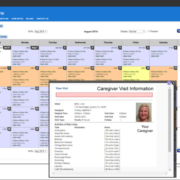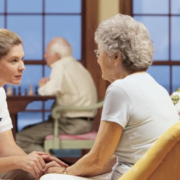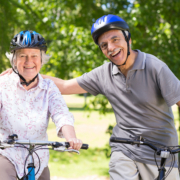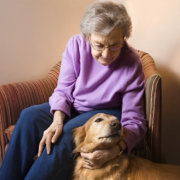We’re modernizing the process of setting up and managing care as well as improving upon communication between families, Care Professionals, and our Support Team.
Technology and Care that makes a difference.
Caregivers will be able to list their qualifications, skills, hours they’re able to work and distances they’re willing travel. Seniors will specify the type of help they need, the hours they want and important personal details – that they only speak Spanish, or that they have dogs, or that they live in a senior living community. Approved will match caregivers and seniors accordingly, with final approval of the match in the hands of the seniors and their families.
Approved will also give seniors a custom-built, easy-to-use internet portal where staff and families can view any changes in the senior’s needs or condition, so the caregivers will be better prepared when they walk in the door. Our portals and telephony system will also be used to record what services seniors received and for how long. Authorized relatives will have access to the information, so they’ll be able to monitor the situation.
We do things differently…
Approved family portal.
We’re modernizing the process of setting up and managing care as well as improving upon communication between families, Care Professionals, and our Support Team. Of course, our Care Pros are amazing. We make sure of that. Get to know your Caregiver. See when they arrive, what they help with, and when they leave.
Know who’s coming and when.
Caregivers you can trust. We interview and thoroughly screen every care professional before they can become an Approved Qualified Caregiver. Only the best meet our standards. Approved not only verifies skills, training, and references, we also look for people who are compassionate, caring, and bring joy to their work. View your caregiver’s picture & schedule before they arrive.
Schedule care quickly.
Request care on our website or call us, and a Care Pro can be there in just 2 hours. Schedule care visits by the hour, pay by the hour. It’s that simple. Our pricing is as variable as your needs.
Always informed. Always in touch.
Any special conditions?
Food preferences?
Allergies?
Approved keeps your Care Pro informed so they can provide great care, exactly the way you like it. You and your Care Pro can stay in touch about every step of your Care Plan, including scheduled visits, tasks, and goals.
972.658.4001





